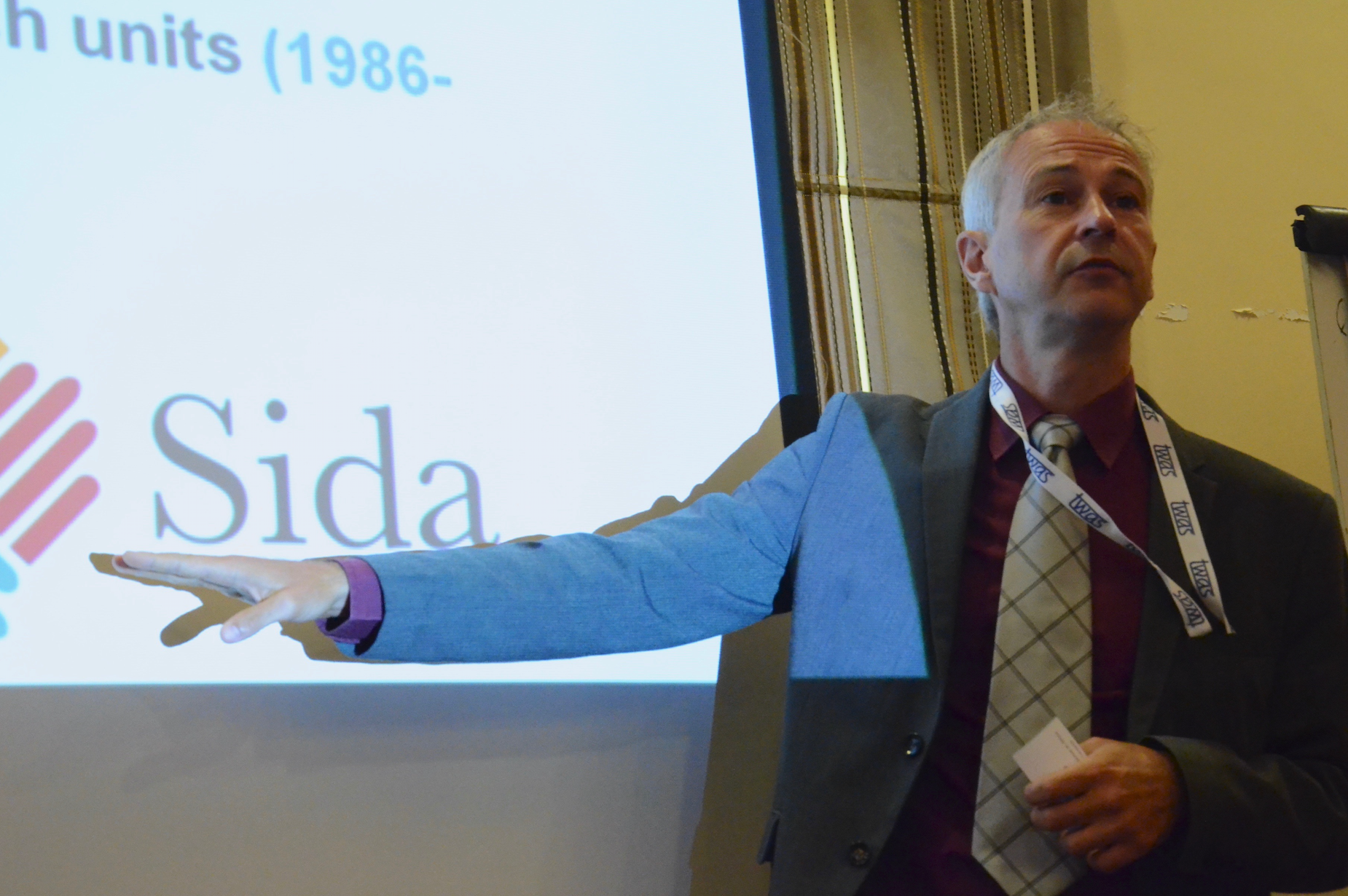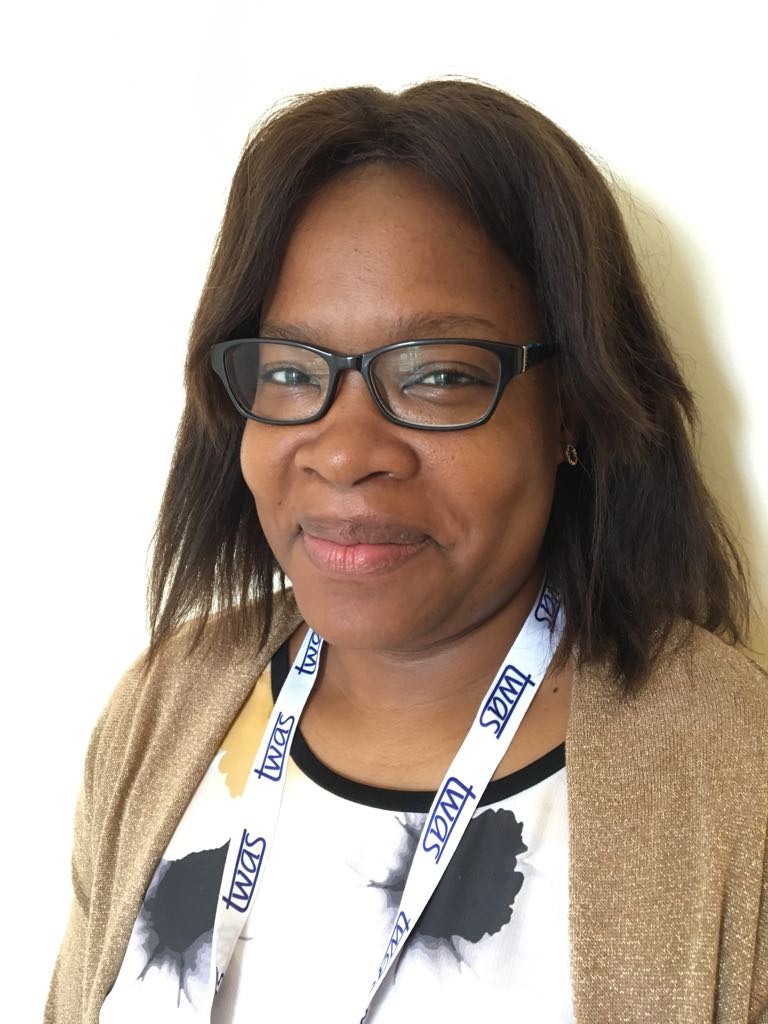Dar es Salaam – What does a scientific proposal need to outmatch the strongest competitors? Why should researchers connect with industries instead of focusing only on basic research? How can young scientists contribute to solutions for sustainability-related challenges?
A number of issues that are central to successful research will be core topics in the TWAS 2018 Research Grants conference "Building Skills for Science in Africa that takes place in Dar es Salaam from 28-31 August. The event opens at 9:00 at Ledger Plaza Bahari Hotel (Kunduchi Mtomgani Road, 60746, Dar es Salaam).
 "Scientists like you need to be ambassadors of science and speak to plicymakers and politicians," urged professor Esther Mwaikambo, President of the Tanzania Academy of Sciences and a senior Paediatrician at the Hubert Kairuki Memorial University (HKMU). "Winning a TWAS Research Grant was just the beginning. Now you have to be even more competitive," she said in her keynote speech. Then she shared with the audience some inspiring considerations about the need to preserve critical thinking in science, and to avoid falling into the trap of "publish or perish". More than publishing scientific papers, she said, it is more important to think critically.
"Scientists like you need to be ambassadors of science and speak to plicymakers and politicians," urged professor Esther Mwaikambo, President of the Tanzania Academy of Sciences and a senior Paediatrician at the Hubert Kairuki Memorial University (HKMU). "Winning a TWAS Research Grant was just the beginning. Now you have to be even more competitive," she said in her keynote speech. Then she shared with the audience some inspiring considerations about the need to preserve critical thinking in science, and to avoid falling into the trap of "publish or perish". More than publishing scientific papers, she said, it is more important to think critically.
The Research Grants Conference is organized by TWAS, which supports sustainable development through research, education, science policy and science diplomacy. The event is sponsored by the Swedish International Development Cooperation Agency (Sida).
 "There are extraordinary elements that give this first regional Research Grants conference a huge and unprecedented scientific value," explained Max Paoli, TWAS's programme coordinator. "We will provide African scientists with tools to increase their competitiveness, shape their skills, and improve scientific outcomes and networking ability. Top-level speakers invited to the conference will address many must-know topics."
"There are extraordinary elements that give this first regional Research Grants conference a huge and unprecedented scientific value," explained Max Paoli, TWAS's programme coordinator. "We will provide African scientists with tools to increase their competitiveness, shape their skills, and improve scientific outcomes and networking ability. Top-level speakers invited to the conference will address many must-know topics."
The Dar es Salaam Conference will host 28 past TWAS research grant winners from 17 African countries. During the conference, Revel Iyer, director of the Technology Transfer Office at Cape Peninsula University of Technology (CPUT) in Cape Town (South Africa), will discuss the difference between inventions and discoveries, offering examples of the financial return on patents. Former TWAS grant recipient Emmanuel Unuabonah, from Redeemer's University in Nigeria, will focus on the importance of teaching at various levels, and will discuss the sensitive issue of academic honesty, including plagiarism.
One of the earliest and most successful Academy programmes, the TWAS Research Grants scheme was established in 1986 in response to the needs of promising young scientists from developing countries who were lacking equipment, consumables and access to scientific literature. Through decades, the programme has expanded thanks to the support of the Italian government and Sida. Today, the grants also allow for the training of early-career scientists with master's degrees.
More than 2,530 grants worth USD16.6 million were awarded from 1986-2017, with Sida as the primary funding agency.
Today TWAS distributes annually more than USD1 million in research grants to individual scientists and groups. "Applications submitted to our Academy undergo a highly competitive reviewing process," Paoli explained. The standards are high, he added. "From 2012 to 2017 we received more than 1,000 applications, but not more than 280 have passed the scrutiny," he added.
Many of the conference participants come from United Nation's list of 47 Least Developed Countries (LDCs). These countries are defined by the UN as being among the poorest natio ns in the world, unable to effectively participate in the global scientific enterprise: Angola, Benin, Burkina Faso, Malawi, Niger and Tanzania, to name a few.
ns in the world, unable to effectively participate in the global scientific enterprise: Angola, Benin, Burkina Faso, Malawi, Niger and Tanzania, to name a few.
Well-balanced in gender with 49% women scientists in the audience, the grant recipients attending TWAS's conference are motivated scientists who want to contribute to their communities through research and technology.
"This is the first time I recive a TWAS-UNESCO award and I am very excited for the research that I'm going to do with this money," said Zoraima Neto, a biomedical scientist from Angola and a 2018 TWAS grant recipient. "Today I expect to know more about TWAS and its programme, especially about imprtant issues like writing a proposal and publishing scientific papers, a sector where we have no experience in Angola."
The conference will also expose African participants to networking exercises, devised to stimulate adoption of innovative perspectives in the important process of building new collaborations.
About TWAS
The World Academy of Sciences for the advancement of science in developing countries – TWAS – supports sustainable prosperity through research, education, policy and diplomacy. TWAS was founded in 1983 by a distinguished group of scientists from the developing world, under the leadership of Abdus Salam, the Pakistani physicist and Nobel Prize winner. Today, TWAS has more than 1,200 elected Fellows from nearly 100 countries; 14 of them are Nobel laureates. The Academy is based in Trieste, Italy, on the campus of the Abdus Salam International Centre for Theoretical Physics (ICTP). Through more than three decades, its mission has focused on supporting and promoting excellence in scientific research in the developing world and applying scientific and engineering research to address global challenges. TWAS receives core funding from the government of Italy and essential programmatic funding from the Swedish International Development Cooperation Agency (Sida). It is a programme unit of the United Nations Educational, Scientific and Cultural Organization (UNESCO).
About Sida
The Swedish International Development Cooperation Agency – Sida – is a government agency whose mission is to reduce poverty in the world. Through its work and in cooperation with others, Sida contributes to implementing Sweden’s Policy for Global Development. Sida's relationship with TWAS began in 1991, a few years after the inauguration of the Academy's research grants programme. Since then, the Swedish agency has played an essential role as a supporter for the Academy's work. It funds the TWAS science diplomacy programme and the Academy's global communication initiatives. The TWAS-Sida partnership has built basic science capacity at universities and research centres where scientists are working to improve health and food production, to protect water supplies, and to support innovation in manufacturing. Sida also provides programmatic funding for the Organization for Women in Science for the Developing World (OWSD), a key partner for TWAS, and for the GenderInSITE project hosted by TWAS.
Cristina Serra

